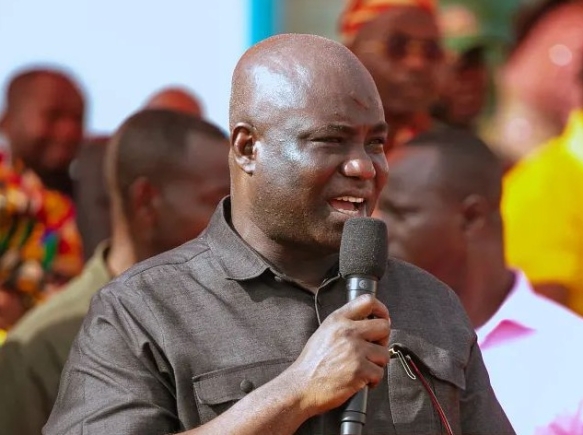
5,000 agric graduates to be deployed under Feed Ghana programme - Minister
The Minister of Food and Agriculture, Eric Opoku says the government will deploy 5,000 agricultural and veterinary college graduates under the newly introduced Feed Ghana programme.
In a radio interview on Accra based Citi FM on Monday [April 14 2025], Mr Opoku said some of the graduates, who have been without jobs since 2015, will be posted to various farming areas across the country as part of the government’s broader Agriculture for Economic Transformation Agenda.
“We want all 5,000 of them to be part of the Feed Ghana programme so that they will be deployed to the various farms to assist our farmers to adopt modern techniques of farming,” Mr Opoku stated.
He explained that the Feed Ghana programme is serving as the umbrella initiative under which different agricultural support projects will be rolled out. These include vegetable production, grain development, and poultry farming.
Mr Opoku raised concern about Ghana’s growing reliance on imported food, pointing out that the country spends about GH₵4 billion each year on tomatoes from Burkina Faso, GH₵240 million on onions from Niger, and more than GH₵3 billion on imported pepper.
“If Burkina Faso is able to produce the tomatoes, why is it that we cannot do it here in Ghana? We have the fertile soil and all the agricultural endowment,” he remarked.
Read also: President Mahama launches Feed Ghana Programme
Atebubu-Amantin is the most productive agricultural district in Ghana and will be the first of 50 districts to receive a new Farmer Service Centre this 2025 - Agric Minister Eric Opoku
According to the minister, the Atebubu-Amantin District has been identified as the most productive agricultural district in the country and will be the first of 50 districts to receive a new Farmer Service Centre this year [2025].
“In the centres, we are sending tractors, combined harvesters, improved seeds, fertilisers, extension officers, and water pumping machines,” Mr Opoku explained. “Even if farmers don’t have money, the centres will provide services, and farmers can repay after harvest.”
On irrigation, the minister said funding of €47 million from the European Union and the French Embassy has been secured.
The money will go into the construction of eight new dams, rehabilitation of existing ones, and the drilling of 45 mechanised boreholes, with a focus on supporting women and young farmers.
“We have taken inventory of all irrigation infrastructure in the country, and as we speak, all our irrigation infrastructure are either non-functional or operating under capacity, with some even doing 10 percent of installed capacity,” he disclosed.
Mr Opoku also announced that a partnership with private investors is underway to establish a soya processing plant in the northern part of the country. The move, he said, is aimed at providing a ready market for soya farmers and reducing the cost of poultry feed, which remains a major concern for local poultry producers.
To protect local supply, the government has placed a temporary ban on the export of soya beans. The restriction will remain in place until processors in Ghana have sufficient stock.
Responding to concerns about implementation, particularly given that many officials from the previous administration’s Planting for Food and Jobs programme are still in place, Mr Opoku said leadership would be the deciding factor.
“It takes leadership to rally people behind strategies to make them happen at all cost. If leadership decides not to be part of implementation, certainly you won’t get results,” he said.
He further indicated that the National Buffer Stock Company has been repositioned to buy food directly from farmers during the harvest period. These stocks will be stored and released during lean seasons to help keep food prices stable for both farmers and consumers.
Mr Opoku said that visible improvements in the poultry sector should be seen within the next three years. He encouraged the media to track the programme’s progress and promised that the government would welcome such scrutiny.
He added that the full Feed Ghana programme document, which outlines specific performance targets and expected results, is available at the Ministry of Food and Agriculture.
